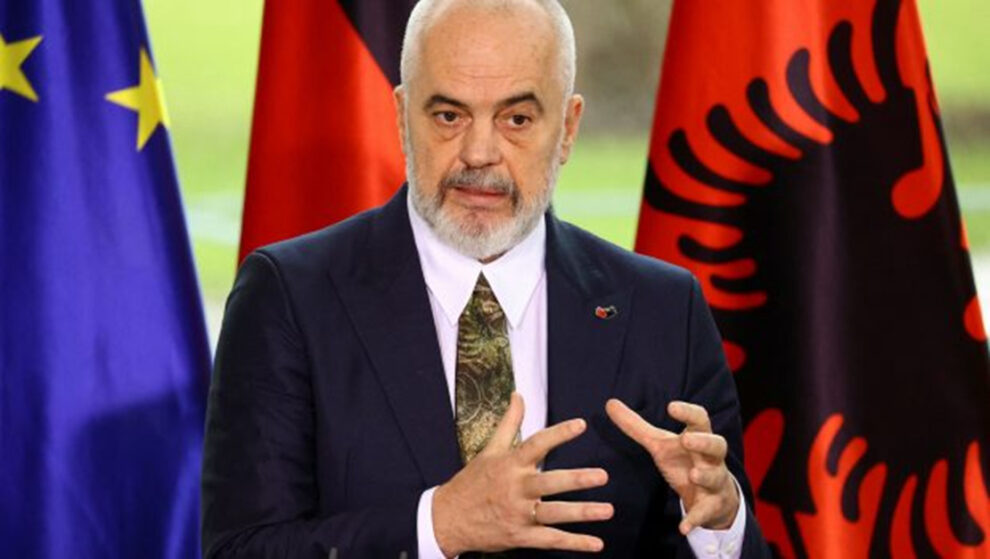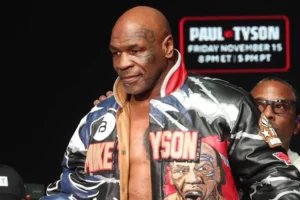Mafias, criminal gangs and drugs seem to rule Albania. Or at least that’s the image the Financial Times seems to have of the small Albanian state: a country full of scandals.
Albanian Edi Rama is one of the most pro-Western leaders in the Balkans, a former basketball player and artist who came to power promising a ruthless crackdown on criminal gangs, the FT writes.
However, a decade on, Rama’s struggles to fulfill that commitment are becoming increasingly clear as he has been embroiled in several scandals that have tarnished his image at home and abroad.
Rama was forced to defend supposedly money-laundering-friendly reforms, explain how former government associates became involved in drug-trafficking investigations and explain his role in bringing down a disgraced FBI agent.
Lutfi Dervishi, an independent political analyst and former executive director of Transparency International in Albania, said: “The biggest damage has been done to the country’s international reputation. The prime minister was once an international media star.”
He said Rama had handled many crises well, including the coronavirus pandemic, “but now, like a boomerang, he is suddenly in the limelight for negative news.”
The gang cameras
The power of criminal networks in Albania was spectacularly exposed last month. Police have taken down hundreds of surveillance cameras installed by criminals – a massive law enforcement surveillance spying operation.
The revelations were an unfortunate development for Rama who had been courted by the West as a like-minded man in a region known for its shifting alliances.
From a family of artists, Rama began his career as a basketball player, then spent a decade painting in Paris before returning to Albania and entering politics. As mayor of Tirana in the early 2000s, he helped transform the capital by repainting dull communist-era apartment buildings in vibrant colors.
Rama defended his efforts to root out gangs: “Fighting crime and illegal trafficking has been a priority for this government,” he told the Financial Times through a spokesman.
But his government courted controversy last year by seeking to offer a tax amnesty for the repatriation of up to €2m of undeclared foreign earnings, a move critics say would give high-paid criminals a free hand.
The law is pending parliamentary approval, although previous versions of the plan have been criticized by the EU, to which Albania is a candidate for membership. Rama’s government said the law would only apply to legal income.
The scandals
This was followed by other scandals. Dervishi said Transparency International’s corruption perception index for Albania has decreased “only” since 2016. “I’ve kept a running note this year of major corruption-related scandals,” he said.
Senior members of Rama’s previous governments have been implicated in drug cases. Former Interior Minister Saimir Tahiri was jailed for abuse of power for links to a trafficking ring.
Rama’s defenders say previous heads of government would never have allowed their own officials to be jailed. But the surveillance scandal has angered ordinary citizens, many of whom believe the government is working with drug traffickers.
These traffickers are expanding their reach. Albanian gangs have expanded from illegal cannabis plantations to trafficking cocaine and heroin directly from Latin America and Asia. Millions of euros have poured into Albania, helping to develop luxury real estate along the Mediterranean coast.
“The world of crime is being strengthened to a new level,” said former Justice Minister Aldo Bumci, a member of the opposition Democratic Party.
He pointed to coastal developments and gleaming residential towers in Tirana as a destination for illicit cash. “Distribution networks are growing, as is money laundering. . . who can afford these apartments? Not ordinary Albanians.”
The glamorous lifestyle of gangsters in one of Europe’s poorest countries contrasts sharply with the struggle of ordinary Albanians, many of whom choose to emigrate. A third of the country’s citizens live abroad, where immigration to the UK has strained relations with London.
His… friends abroad
Rama’s reputation abroad has also been tarnished by his dealings with a disgraced US police official accused of helping the Albanian leader prosecute political opponents.
The US Justice Department in January charged former FBI counterintelligence chief Charles McGonigal with violating US sanctions and money laundering by working for Russian oligarch Oleg Deripaska.
A separate indictment focuses on McGonigal’s undeclared contacts with Rama and alleges that he performed paid services for the Albanians. McGonigal is accused of taking at least $225,000 from an Albanian intelligence officer and then passing information from Rama’s office to US authorities. They in turn launched an investigation into a US-based lobbyist working for the Albanian opposition.
Opposition leader Sali Berisha, a former president and prime minister, claimed his own 2021 US blacklist was a result of Rama’s alleged contacts with McGonigal. The US decision, “eight years after I left office … is based solely on Edi Rama’s lobbying power,” he told the FT.
Rama denies using his contacts with McGonigal for this purpose. He noted that he was not charged in the McGonigal case and stated that he was “used as a scapegoat by many people in Albania who are constantly in trouble with the justice system.”
The US special envoy for the Balkans, Gabriel Escobar, said Albania remains “a steadfast NATO ally – a good bilateral partner”.
Rama’s pleasant personality has earned him good relations with leaders, including liberals and conservatives from the East and West. He attended the third wedding of George Soros, as well as that of a daughter of Turkish President Recep Tayyip Erdogan.
But May’s municipal elections will test the prime minister’s hold on Albanian politics. Edval Zotto, an independent analyst, said Rama was suffering “consequences in terms of popular support and public opinion”.
He added, however, that “there is currently no other political offer in Albania” given that opposition leader Berisha is under sanctions from key allies the US and the UK.
Rama’s Socialist Party controls all local governments except the northern city and province of Shkodër. Close to Montenegro, the espionage scandal started in this city.
Police tried to obtain footage from those cameras in January after an explosion outside the home of a police commander who had led an operation against cannabis growers and drug-trafficking rings. When the local gangsters refused to cooperate, the police began to neutralize them. More than 500 devices were removed across the country.
Rama said at the time that the police operation was “a bit of a Catch-22 situation in that we are being blamed for not taking action and we are also being blamed for taking action”.
Artan Hoxha, an Albanian investigative journalist, said he had seen “huge control rooms with many screens, where they monitor big criminal rings”.
“They had night vision, facial and license plate recognition capabilities. Only the police should have cameras like this. There were even cameras in the forests to monitor the cannabis plantations.”
Shkodër’s mayor from the opposition Democratic Party of Berisha said fear of criminals had caused a mass exodus. “This area has 215,000 inhabitants, about 6,000 leave within a year. At this rate, in a decade and a half, half the area will be gone,” he said.
Blaming “dysfunctional state structures,” he said the surveillance scandal was “a drop in the ocean of our crime-infested government.”
Petrit, a cafe manager in Shkodër, agreed: “What looks like corruption, feels like corruption and sounds like corruption is probably just that, corruption…No wonder people are leaving in droves.”
Source: formedia
















